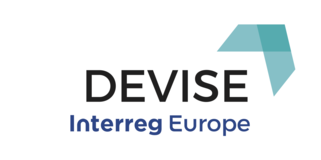GOOD PRACTICE
Mobilize students in order to enable SMEs to integrate innovative solutions
Very often traditional SMEs believe that they cannot innovate or integrate digital solutions in their process/communication/organisation, as these tools are more dedicated to bigger companies. In addition, they are not aware of skills that are available in schools (higher education) of their area, a fact that is shared by students that do not know local companies and leave the area for their internships or after their studies.
The Challenge & Competencies (“Challenge Compétences”) programme aims to gather students, with their innovative and creativity spirit, and local SMEs, in order to initiate new and mainly digital projects in the companies.
With no constraints forced on them, during the week of the Challenge Compétences and in a team of 5-people, the students suggest ideas and develop an innovative and digital project up to the mock-up stage (a kind of POC of their main idea). Their challenge is to use the skills they are learning at school, to solve companies’ issues or concerns.
Local companies will then get a first hint of the type of project/product they could implement.
After the end of the Challenge, part of the SMEs will have the student projects developed by students within internships or by digital companies into a ‘real’ product/service.
The main stakeholders and beneficiaries of this practice are:
- Local schools (higher education)
- Students (3rd and 4th level after A-level)
- Local companies
- Business support organisation or creativity specialists
Resources needed
For 1 challenge with 1 school (5 teams – 20 to 25 students) :
Human resources:
- 13.5 days for the organisation body staff
- 4 days for the school staff
Financial resources:
- 1,000 to 1,350€ for the organizer
- 900 to 1,150€ for the school
Evidence of success
Since 2011:
- 8 editions
- 26 sessions with 7 different schools
- 783 students within 163 teams
- 131 companies
- 88% of companies are satisfied (figures from 2017 and 2018 editions)
- 88% of companies are ready to recommend the challenge (figures from 2017 and 2018 editions)
- 56% of companies say they want to carry on at least 1 project
Potential for learning or transfer
This programme has a multitude of positive effects on an entire territory and in particular:
- The opportunity for students to highlight their skills and work on a real project
- The discovery of new technologies and the opportunity to benefit from an outside point of view for companies
- The emergence of innovative projects for companies
This practice is easy to duplicate in other regions and Laval Mayenne Technopole are open to share their experience with organisations that would like to implement a similar programme.
Discover more good practices shared by DEVISE project partners.











